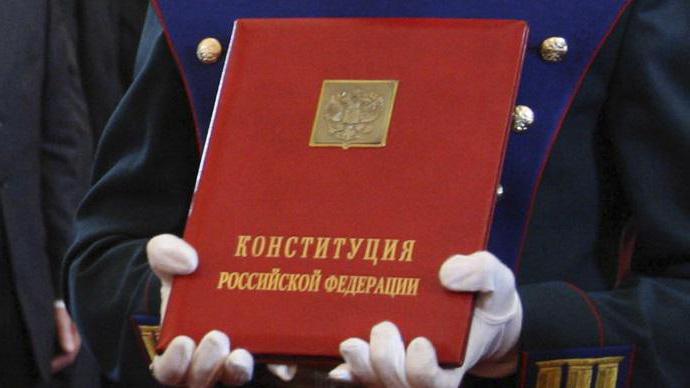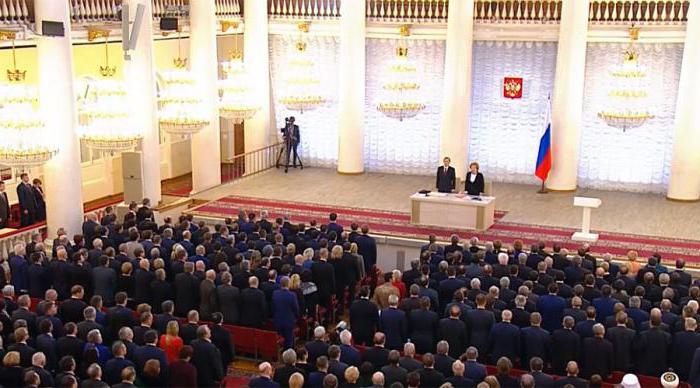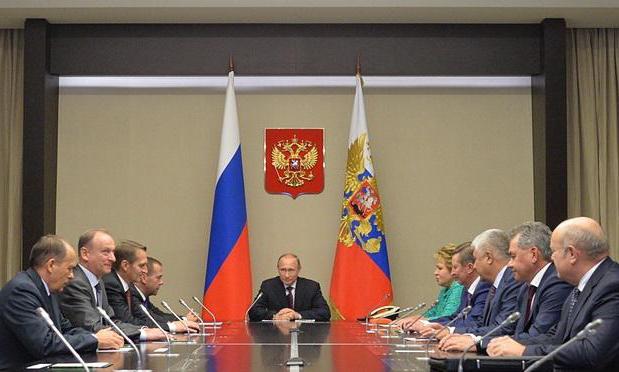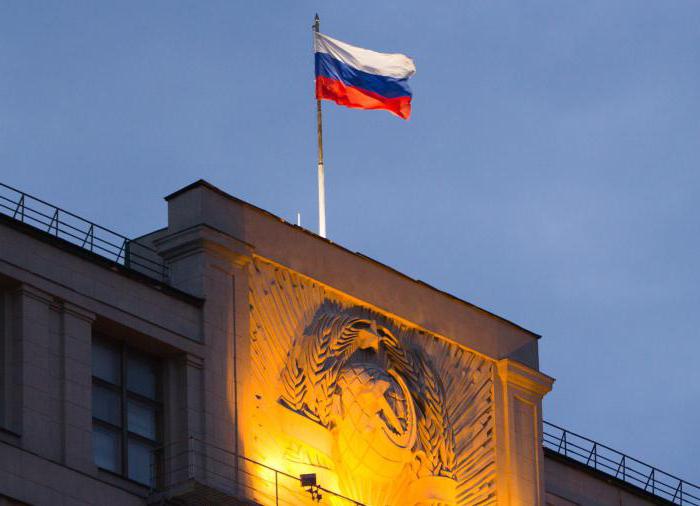The Russian Federation is a state with a federal territorial structure. This means that the Constitution strictly distinguishes between state and local government. Central and subject state authorities have the opportunity to exercise their functions separately. That is why we can say that the regions are given some freedom of action. How the system of state power and local government works will be described in the article.
The problem of correlation of central and regional management
According to Article 1 of the country's main law, the Russian people are the only source of power in Russia. He exercises his power in two ways: directly and indirectly. In the first case, it is about elections and a referendum. Indirect participation, however, involves empowerment of individual officials and the formation of state and local self-government bodies.
To meet the interests of the population of certain regions, there are local government bodies in the Russian Federation. They operate in strict accordance with Article 72 of the Russian Constitution, which describes the joint powers of the subjects and the federation.
The bodies of the subjects, therefore, have some independence in making a number of decisions. However, the “center” retains several local channels, among which it is worth highlighting the adoption of laws relating to local self-government, the appointment of local representatives, the development of financial programs and the assignment of individual tasks to municipalities.
Constitution on the delineation of functions between public authorities and local governments
It is worth paying attention to articles 71 and 72 of the Russian Constitution. Article 71 enshrines the sole powers of the federation. This regulation of issues of the federal structure, foreign policy, federal property and other national problems.
Article 72 addresses issues of general jurisdiction. So, the systems of local government and non-government should implement the following functions together with the federation:
- protection of human rights and freedoms;
- implementation of law enforcement in the country;
- environmental protection;
- nature management;
- questions of upbringing and education, etc.
In fact, the diversity of regional activities is incredibly great. This is the principle of federalism.
Executive structure
The most important branch in the system of state power is the totality of executive bodies. They are endowed with operational autonomy, carry out executive-administrative activities, are formed by the "center" and are controlled by the Government. If we talk about the functions of executive bodies, then everything is simple: this is control over the implementation of public administration. It is worth noting that it can be expressed in various forms. That is why the executive branch itself has a very broad and diverse structure.
The main body in the system under consideration is the Russian Government. It includes many ministries that exercise their own powers within their competence. If we talk about the competence of the territorial type, then it is worth noting the inter-regional, regional and local authorities.Executive bodies in entities are expressed in the form of administrations, governments of entities, officials (mayor, governor, president of the republic, etc.). Thus, state and local government in the system of executive power is built very harmoniously and efficiently.
Signs of the executive authority
For an optimal understanding of exactly how the executive system of state and local government functions, it is worth paying attention to its main features. Specialists in the field of law distinguish the following features of executive bodies:
- The highest link of the executive power system is the Russian Government. This is a collegial body headed by the chairman of the government (prime minister). The subject of authority of the represented body is state administration and control and supervision of the lower, subject authorities.
- Clear boundaries of the system are established to comply with the principle of separation of powers. In order to provide checks and balances, executive power may be limited. So, some of its decisions are subject to cancellation by the President, if they find contradictions to the current legislation.
- The whole system is united in terms of reference and authority. The scope of authority of the authorities is approximately the same. Both the Government and regional authorities must act strictly in accordance with the law.
All the signs presented indicate that the system of state and local government in Russia is built in strict accordance with the norms of the law.
Functions of Executive Bodies
Regardless of whether central or regional is one or another instance of the executive branch, most of the functions here will always look approximately the same. So, it is worth noting:
- by-laws regulation and enforcement of administrative type;
- the implementation of activities of a managerial nature, the purpose of which is to control the implementation of laws;
- implementation of the state political program in a particular public sphere;
- administrative control functions;
- law enforcement, safety in the public and civilian environment;
- licensing, certification, registration and other executive functions;
- work on information support of the state system;
- ensuring close interaction between local government and public administration, etc.

It should also be noted that often local governments in the Russian Federation are formed with the help of executive bodies or their representatives. Such phenomena of the best way show how the interaction between state and local authorities occurs.
System of representative bodies
The main authority in the system of representative (legislative) power is, of course, the bicameral Parliament. In the Russian Federation, this body is also called the Federal Assembly, which consists of two chambers: State. Duma and Federation Council.  Representative authorities may be established in the regions. They get different names: council of deputies, regional council, regional representative body, etc. At meetings, decisions are made on the adoption of local laws and regulations.
Representative authorities may be established in the regions. They get different names: council of deputies, regional council, regional representative body, etc. At meetings, decisions are made on the adoption of local laws and regulations.
Representative bodies and local government
What are the relationships between the legislative system of government and local government? It is worth paying attention to the Federal Law No. 37 "On Local State Administration (Self-Government)" of 2003. It states that either the head of the region’s administration (executive branch) or a person appointed by contract may become the head of a self-government instance. They most often become a deputy from the local representative body.By the way, the head of the administration itself is appointed by the regional legislature. Such connections in the entire system under consideration are the guarantor of the effective work of various authorities.
Local government in the regions
A little more detail is worth telling about the very system of local self-government in the regions. Unfortunately, in the Russian Federation there are many problems with this system. For example, the country still lacks a unified theory of local government. Because of this, the relevant authorities are formed completely freely - without taking into account any requirements or attitudes. Separately, it is worth highlighting the problems associated with financing, with the weakness of information support, with the lack of a clear distinction between state and local self-government, etc.
Of course, the Federal Law "On Local Government and Self-Government" was adopted. However, despite some rules and requirements specified in this normative act, the system itself is still not fully developed. The problem of the relationship between the structure under consideration and state power will be discussed below.
The ratio of state and local government
Local self-government bodies may be vested with a number of state powers. However, their implementation will be under strict supervision of representative and executive authorities. The system of regional self-government cannot be called state. According to the law, this, on the contrary, is a non-state structure, since it acts on behalf of public organizations or associations, as well as ordinary citizens. But, paradoxically, representatives of the government nevertheless enter the system of self-government.
Article 132 of the Russian Constitution sets forth the principles of organizing local self-government. It is worth noting here:
- budget availability and local taxes;
- the presence of organs of the elective type;
- own property;
- ensuring order;
- lack of submission to any municipality.
Next, we should talk about possible ways to modernize the system in question.
Structural modernization of local government
Most Russian legal experts have long been talking about the need for reform in the field of local private governance. The first problem is related to the so-called "settlement" model. It involves the creation of a large number of small municipal type entities. It is not difficult to guess how many difficulties this model brings. Here are problems in resolving a range of issues, and weakening of the financial base, and territorial remoteness. According to some scholars, the “district” model, which involves the creation of fairly large municipalities, is much more efficient and practical..
Some experts call the problem the principle of freedom in the formation of self-government bodies. Thus, lawyers talk about the need to amend article 132 of the Constitution and the corresponding federal law. But is the principle of freedom really a problem? The issue is controversial, and therefore not everyone is talking about modernization in this area.
Improving the financial side of local government
So, the system of state bodies in Russia operates relatively smoothly: at the constitutional level, central and local functions are distributed, a clear structure of all power branches is fixed, ways of modernization are worked out. The only problem recognized by many experts is the relationship between local government and state and government in the regions.
In addition to difficulties with the structure of the system, it is worth noting the presence of problems with the fiscal sphere. Unfortunately, today local budgets are not balanced, their independence is not strengthened.There are no methods for developing procedures for managing these budgets.
If lawmakers pay attention to all the problems presented, the local government system will quickly and qualitatively begin to improve.
Strengthening control over the local government system
Legal passivity of the Russian population is also an important problem at present. Meanwhile, public control over the state and non-state systems of power is today extremely necessary. In its absence, many problems arise, among which the misuse of subventions, the abuse of power by officials, the formation of threats to human rights and freedoms, etc.  The system of state and local governance, however modernized, will be truly effective only if strong and effective control by the population is established.
The system of state and local governance, however modernized, will be truly effective only if strong and effective control by the population is established.